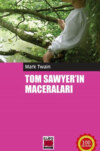Kitabı oku: «Complete Letters of Mark Twain», sayfa 41
XXXVII. Letters, 1898, To Howells And Twichell. Life In Vienna. Payment Of The Debts. Assassination Of The Empress
The end of January saw the payment of the last of Mark Twain’s debts. Once more he stood free before the world – a world that sounded his praises. The latter fact rather amused him. “Honest men must be pretty scarce,” he said, “when they make so much fuss over even a defective specimen.” When the end was in sight Clemens wrote the news to Howells in a letter as full of sadness as of triumph.
*****
To W. D. Howells, in New York:
Hotel Metropole,
Vienna, Jan. 22, ’98.
Dear Howells, – Look at those ghastly figures. I used to write it “Hartford, 1871.” There was no Susy then – there is no Susy now. And how much lies between – one long lovely stretch of scented fields, and meadows, and shady woodlands, and suddenly Sahara! You speak of the glorious days of that old time – and they were. It is my quarrel – that traps like that are set. Susy and Winnie given us, in miserable sport, and then taken away.
About the last time I saw you I described to you the culminating disaster in a book I was going to write (and will yet, when the stroke is further away) – a man’s dead daughter brought to him when he had been through all other possible misfortunes – and I said it couldn’t be done as it ought to be done except by a man who had lived it – it must be written with the blood out of a man’s heart. I couldn’t know, then, how soon I was to be made competent. I have thought of it many a time since. If you were here I think we could cry down each other’s necks, as in your dream. For we are a pair of old derelicts drifting around, now, with some of our passengers gone and the sunniness of the others in eclipse.
I couldn’t get along without work now. I bury myself in it up to the ears. Long hours—8 and 9 on a stretch, sometimes. And all the days, Sundays included. It isn’t all for print, by any means, for much of it fails to suit me; 50,000 words of it in the past year. It was because of the deadness which invaded me when Susy died. But I have made a change lately – into dramatic work – and I find it absorbingly entertaining. I don’t know that I can write a play that will play: but no matter, I’ll write half a dozen that won’t, anyway. Dear me, I didn’t know there was such fun in it. I’ll write twenty that won’t play. I get into immense spirits as soon as my day is fairly started. Of course a good deal of this friskiness comes of my being in sight of land – on the Webster & Co. debts, I mean. (Private.) We’ve lived close to the bone and saved every cent we could, and there’s no undisputed claim, now, that we can’t cash. I have Mark.d this “private” because it is for the friends who are attending to the matter for us in New York to reveal it when they want to and if they want to. There are only two claims which I dispute and which I mean to look into personally before I pay them. But they are small. Both together they amount to only $12,500. I hope you will never get the like of the load saddled onto you that was saddled onto me 3 years ago. And yet there is such a solid pleasure in paying the things that I reckon maybe it is worth while to get into that kind of a hobble, after all. Mrs. Clemens gets millions of delight out of it; and the children have never uttered one complaint about the scrimping, from the beginning.
We all send you and all of you our love.
Mark.
Howells wrote: “I wish you could understand how unshaken you are, you old tower, in every way; your foundations are struck so deep that you will catch the sunshine of immortal years, and bask in the same light as Cervantes and Shakespeare.”
The Clemens apartments at the Metropole became a sort of social clearing-house of the Viennese art and literary life, much more like an embassy than the home of a mere literary man. Celebrities in every walk of life, persons of social and official rank, writers for the press, assembled there on terms hardly possible in any other home in Vienna. Wherever Mark Twain appeared in public he was a central figure. Now and then he read or spoke to aid some benefit, and these were great gatherings attended by members of the royal family. It was following one such event that the next letter was written.
(Private)
*****
To Rev. J. H. Twichell, in Hartford:
Hotel Metropole,
Vienna, Feb. 3, ’98.
Dear Joe, There’s that letter that I began so long ago – you see how it is: can’t get time to finish anything. I pile up lots of work, nevertheless. There may be idle people in the world, but I’m not one of them. I say “Private” up there because I’ve got an adventure to tell, and you mustn’t let a breath of it get out. First I thought I would lay it up along with a thousand others that I’ve laid up for the same purpose – to talk to you about, but – those others have vanished out of my memory; and that must not happen with this.
The other night I lectured for a Vienna charity; and at the end of it Livy and I were introduced to a princess who is aunt to the heir apparent of the imperial throne – a beautiful lady, with a beautiful spirit, and very cordial in her praises of my books and thanks to me for writing them; and glad to meet me face to face and shake me by the hand – just the kind of princess that adorns a fairy tale and makes it the prettiest tale there is.
Very well, we long ago found that when you are noticed by supremacies, the correct etiquette is to go, within a couple of days, and pay your respects in the quite simple form of writing your name in the Visitors’ Book kept in the office of the establishment. That is the end of it, and everything is squared up and ship-shape.
So at noon today Livy and I drove to the Archducal palace, and got by the sentries all right, and asked the grandly-uniformed porter for the book and said we wished to write our names in it. And he called a servant in livery and was sending us up stairs; and said her Royal Highness was out but would soon be in. Of course Livy said “No – no – we only want the book;” but he was firm, and said, “You are Americans?”
“Yes.”
“Then you are expected, please go up stairs.”
“But indeed we are not expected – please let us have the book and—”
“Her Royal Highness will be back in a very little while – she commanded me to tell you so – and you must wait.”
Well, the soldiers were there close by – there was no use trying to resist – so we followed the servant up; but when he tried to beguile us into a drawing-room, Livy drew the line; she wouldn’t go in. And she wouldn’t stay up there, either. She said the princess might come in at any moment and catch us, and it would be too infernally ridiculous for anything. So we went down stairs again – to my unspeakable regret. For it was too darling a comedy to spoil. I was hoping and praying the princess would come, and catch us up there, and that those other Americans who were expected would arrive, and be taken for impostors by the portier, and shot by the sentinels – and then it would all go into the papers, and be cabled all over the world, and make an immense stir and be perfectly lovely. And by that time the princess would discover that we were not the right ones, and the Minister of War would be ordered out, and the garrison, and they would come for us, and there would be another prodigious time, and that would get cabled too, and – well, Joe, I was in a state of perfect bliss. But happily, oh, so happily, that big portier wouldn’t let us out – he was sorry, but he must obey orders – we must go back up stairs and wait. Poor Livy – I couldn’t help but enjoy her distress. She said we were in a fix, and how were we going to explain, if the princess should arrive before the rightful Americans came? We went up stairs again – laid off our wraps, and were conducted through one drawing room and into another, and left alone there and the door closed upon us.
Livy was in a state of mind! She said it was too theatrically ridiculous; and that I would never be able to keep my mouth shut; that I would be sure to let it out and it would get into the papers – and she tried to make me promise—“Promise what?” I said—“to be quiet about this? Indeed I won’t – it’s the best thing that ever happened; I’ll tell it, and add to it; and I wish Joe and Howells were here to make it perfect; I can’t make all the rightful blunders myself – it takes all three of us to do justice to an opportunity like this. I would just like to see Howells get down to his work and explain, and lie, and work his futile and inventionless subterfuges when that princess comes raging in here and wanting to know.” But Livy could not hear fun – it was not a time to be trying to be funny – we were in a most miserable and shameful situation, and if—
Just then the door spread wide and our princess and 4 more, and 3 little princes flowed in! Our princess, and her sister the Archduchess Marie Therese (mother to the imperial Heir and to the young girl Archduchesses present, and aunt to the 3 little princes) – and we shook hands all around and sat down and had a most sociable good time for half an hour – and by and by it turned out that we were the right ones, and had been sent for by a messenger who started too late to catch us at the hotel. We were invited for 2 o’clock, but we beat that arrangement by an hour and a half.
Wasn’t it a rattling good comedy situation? Seems a kind of pity we were the right ones. It would have been such nuts to see the right ones come, and get fired out, and we chatting along comfortably and nobody suspecting us for impostors.
We send lots and lots of love.
Mark.
The reader who has followed these pages has seen how prone Mark Twain was to fall a victim to the lure of a patent-right – how he wasted several small fortunes on profitless contrivances, and one large one on that insatiable demon of intricacy and despair, the Paige type-setter. It seems incredible that, after that experience and its attending disaster, he should have been tempted again. But scarcely was the ink dry on the receipts from his creditors when he was once more borne into the clouds on the prospect of millions, perhaps even billions, to be made from a marvelous carpet-pattern machine, the invention of Sczezepanik, an Austrian genius. That Clemens appreciated his own tendencies is shown by the parenthetic line with which he opens his letter on the subject to Mr. Rogers. Certainly no man was ever a more perfect prototype of Colonel Sellers than the creator of that lovely, irrepressible visionary.
*****
To Mr. Rogers, in New York:
March 24, ’98.
Dear Mr. Rogers, – (I feel like Col. Sellers).
Mr. Kleinberg41 came according to appointment, at 8.30 last night, and brought his English-speaking Secretary. I asked questions about the auxiliary invention (which I call “No. 2 “) and got as good an idea of it as I could. It is a machine. It automatically punches the holes in the jacquard cards, and does it with mathematical accuracy. It will do for $1 what now costs $3. So it has value, but “No. 2” is the great thing (the designing invention.) It saves $9 out of $10 and the jacquard looms must have it.
Then I arrived at my new project, and said to him in substance, this:
“You are on the point of selling the No. 2 patents to Belgium, Italy, etc. I suggest that you stop those negotiations and put those people off two or three months. They are anxious now, they will not be less anxious then – just the reverse; people always want a thing that is denied them.
“So far as I know, no great world-patent has ever yet been placed in the grip of a single corporation. This is a good time to begin.
“We have to do a good deal of guess-work here, because we cannot get hold of just the statistics we want. Still, we have some good statistics – and I will use those for a test.
“You say that of the 1500 Austrian textile factories, 800 use the jacquard. Then we will guess that of the 4,000 American factories 2,000 use the jacquard and must have our No. 2.
“You say that a middle-sized Austrian factory employs from 20 to 30 designers and pays them from 800 to 3,000 odd florins a year – (a florin is 2 francs). Let us call the average wage 1500 florins ($600).
“Let us apply these figures (the low wages too) to the 2,000 American factories – with this difference, to guard against over-guessing; that instead of allowing for 20 to 30 designers to a middle-sized factory, we allow only an average of 10 to each of the 2,000 factories – a total of 20,000 designers. Wages at $600, a total of $12,000,000. Let us consider that No. 2 will reduce this expense to $2,000,000 a year. The saving is $5,000,000 per each of the $200,000,000 of capital employed in the jacquard business over there.
“Let us consider that in the countries covered by this patent, an aggregate of $1,500,000,000 of capital is employed in factories requiring No. 2.
“The saving (as above) is $75,000,000 a year. The Company holding in its grip all these patents would collar $50,000,000 of that, as its share. Possibly more.
“Competition would be at an end in the Jacquard business, on this planet. Price-cutting would end. Fluctuations in values would cease. The business would be the safest and surest in the world; commercial panics could not seriously affect it; its stock would be as choice an investment as Government bonds. When the patents died the Company would be so powerful that it could still keep the whole business in its hands. Would you like to grant me the privilege of placing the whole jacquard business of the world in the grip of a single Company? And don’t you think that the business would grow-grow like a weed?”
“Ach, America – it is the country of the big! Let me get my breath – then we will talk.”
So then we talked – talked till pretty late. Would Germany and England join the combination? I said the Company would know how to persuade them.
Then I asked for a Supplementary Option, to cover the world, and we parted.
I am taking all precautions to keep my name out of print in connection with this matter. And we will now keep the invention itself out of print as well as we can. Descriptions of it have been granted to the “Dry Goods Economist” (New York) and to a syndicate of American papers. I have asked Mr. Kleinberg to suppress these, and he feels pretty sure he can do it.
With love,
S. L. C.
If this splendid enthusiasm had not cooled by the time a reply came from Mr. Rogers, it must have received a sudden chill from the letter which he inclosed – the brief and concise report from a carpet-machine expert, who said: “I do not feel that it would be of any value to us in our mills, and the number of jacquard looms in America is so limited that I am of the opinion that there is no field for a company to develop the invention here. A cursory examination of the pamphlet leads me to place no very high value upon the invention, from a practical standpoint.”
With the receipt of this letter carpet-pattern projects would seem to have suddenly ceased to be a factor in Mark Twain’s calculations. Such a letter in the early days of the type-machine would have saved him a great sum in money and years of disappointment. But perhaps he would not have heeded it then.
The year 1898 brought the Spanish-American War. Clemens was constitutionally against all wars, but writing to Twichell, whose son had enlisted, we gather that this one was an exception.
*****
To Rev. J. H. Twichell, in Hartford:
Kaltenleutgeben, near Vienna,
June 17, ’98.
Dear Joe, – You are living your war-days over again in Dave, and it must be a strong pleasure, mixed with a sauce of apprehension – enough to make it just schmeck, as the Germans say. Dave will come out with two or three stars on his shoulder-straps if the war holds, and then we shall all be glad it happened.
We started with Bull Run, before. Dewey and Hobson have introduced an improvement on the game this time.
I have never enjoyed a war-even in written history – as I am enjoying this one. For this is the worthiest one that was ever fought, so far as my knowledge goes. It is a worthy thing to fight for one’s freedom; it is another sight finer to fight for another man’s. And I think this is the first time it has been done.
Oh, never mind Charley Warner, he would interrupt the raising of Lazarus. He would say, the will has been probated, the property distributed, it will be a world of trouble to settle the rows – better leave well enough alone; don’t ever disturb anything, where it’s going to break the soft smooth flow of things and wobble our tranquillity.
Company! (Sh! it happens every day – and we came out here to be quiet.)
Love to you all.
Mark.
They were spending the summer at Kaltenleutgeben, a pleasant village near Vienna, but apparently not entirely quiet. Many friends came out from Vienna, including a number of visiting Americans. Clemens, however, appears to have had considerable time for writing, as we gather from the next to Howells.
*****
To W. D. Howells, in America:
Kaltenleutgeben, bei Wien,
Aug. 16, ’98.
Dear Howells, – Your letter came yesterday. It then occurred to me that I might have known (per mental telegraph) that it was due; for a couple of weeks ago when the Weekly came containing that handsome reference to me I was powerfully moved to write you; and my letter went on writing itself while I was at work at my other literature during the day. But next day my other literature was still urgent – and so on and so on; so my letter didn’t get put into ink at all. But I see now, that you were writing, about that time, therefore a part of my stir could have come across the Atlantic per mental telegraph. In 1876 or ’75 I wrote 40,000 words of a story called “Simon Wheeler” wherein the nub was the preventing of an execution through testimony furnished by mental telegraph from the other side of the globe. I had a lot of people scattered about the globe who carried in their pockets something like the old mesmerizer-button, made of different metals, and when they wanted to call up each other and have a talk, they “pressed the button” or did something, I don’t remember what, and communication was at once opened. I didn’t finish the story, though I re-began it in several new ways, and spent altogether 70,000 words on it, then gave it up and threw it aside.
This much as preliminary to this remark some day people will be able to call each other up from any part of the world and talk by mental telegraph – and not merely by impression, the impression will be articulated into words. It could be a terrible thing, but it won’t be, because in the upper civilizations everything like sentimentality (I was going to say sentiment) will presently get materialized out of people along with the already fading spiritualities; and so when a man is called who doesn’t wish to talk he will be like those visitors you mention: “not chosen”—and will be frankly damned and shut off.
Speaking of the ill luck of starting a piece of literary work wrong-and again and again; always aware that there is a way, if you could only think it out, which would make the thing slide effortless from the pen – the one right way, the sole form for you, the other forms being for men whose line those forms are, or who are capabler than yourself: I’ve had no end of experience in that (and maybe I am the only one – let us hope so.) Last summer I started 16 things wrong—3 books and 13 mag. articles – and could only make 2 little wee things, 1500 words altogether, succeed – only that out of piles and stacks of diligently-wrought Ms., the labor of 6 weeks’ unremitting effort. I could make all of those things go if I would take the trouble to re-begin each one half a dozen times on a new plan. But none of them was important enough except one: the story I (in the wrong form) mapped out in Paris three or four years ago and told you about in New York under seal of confidence – no other person knows of it but Mrs. Clemens – the story to be called “Which was the Dream?”
A week ago I examined the Ms—10,000 words – and saw that the plan was a totally impossible one-for me; but a new plan suggested itself, and straightway the tale began to slide from the pen with ease and confidence. I think I’ve struck the right one this time. I have already put 12,000 words of it on paper and Mrs. Clemens is pretty outspokenly satisfied with it-a hard critic to content. I feel sure that all of the first half of the story – and I hope three-fourths – will be comedy; but by the former plan the whole of it (except the first 3 chapters) would have been tragedy and unendurable, almost. I think I can carry the reader a long way before he suspects that I am laying a tragedy-trap. In the present form I could spin 16 books out of it with comfort and joy; but I shall deny myself and restrict it to one. (If you should see a little short story in a magazine in the autumn called “My Platonic Sweetheart” written 3 weeks ago) that is not this one. It may have been a suggester, though.
I expect all these singular privacies to interest you, and you are not to let on that they don’t.
We are leaving, this afternoon, for Ischl, to use that as a base for the baggage, and then gad around ten days among the lakes and mountains to rest-up Mrs. Clemens, who is jaded with housekeeping. I hope I can get a chance to work a little in spots – I can’t tell. But you do it – therefore why should you think I can’t?
(Remainder missing.)
The dream story was never completed. It was the same that he had worked on in London, and perhaps again in Switzerland. It would be tried at other times and in other forms, but it never seemed to accommodate itself to a central idea, so that the good writing in it eventually went to waste. The short story mentioned, “My Platonic Sweetheart,” a charming, idyllic tale, was not published during Mark Twain’s lifetime. Two years after his death it appeared in Harper’s Magazine.
The assassination of the Empress of Austria at Geneva was the startling event of that summer. In a letter to Twichell Clemens presents the tragedy in a few vivid paragraphs. Later he treated it at some length in a magazine article which, very likely because of personal relations with members of the Austrian court, he withheld from print. It has since been included in a volume of essays, What Is Man, etc.
*****
To Rev. J. H. Twichell, in Hartford:
Kaltenleutgeben, Sep. 13, ’98.
Dear Joe, – You are mistaken; people don’t send us the magazines. No – Harper, Century and McClure do; an example I should like to recommend to other publishers. And so I thank you very much for sending me Brander’s article. When you say “I like Brander Matthews; he impresses me as a man of parts and power,” I back you, right up to the hub – I feel the same way—. And when you say he has earned your gratitude for cuffing me for my crimes against the Leather stockings and the Vicar, I ain’t making any objection. Dern your gratitude!
His article is as sound as a nut. Brander knows literature, and loves it; he can talk about it and keep his temper; he can state his case so lucidly and so fairly and so forcibly that you have to agree with him, even when you don’t agree with him; and he can discover and praise such merits as a book has, even when they are half a dozen diamonds scattered through an acre of mud. And so he has a right to be a critic.
To detail just the opposite of the above invoice is to describe me. I haven’t any right to criticise books, and I don’t do it except when I hate them. I often want to criticise Jane Austen, but her books madden me so that I can’t conceal my frenzy from the reader; and therefore I have to stop every time I begin.
That good and unoffending lady the Empress is killed by a mad-man, and I am living in the midst of world-history again. The Queen’s jubilee last year, the invasion of the Reichsrath by the police, and now this murder, which will still be talked of and described and painted a thousand years from now. To have a personal friend of the wearer of the crown burst in at the gate in the deep dusk of the evening and say in a voice broken with tears, “My God the Empress is murdered,” and fly toward her home before we can utter a question-why, it brings the giant event home to you, makes you a part of it and personally interested; it is as if your neighbor Antony should come flying and say “Cæsar is butchered – the head of the world is fallen!”
Of course there is no talk but of this. The mourning is universal and genuine, the consternation is stupefying. The Austrian Empire is being draped with black. Vienna will be a spectacle to see, by next Saturday, when the funeral cortege marches. We are invited to occupy a room in the sumptuous new hotel (the “Krantz” where we are to live during the Fall and Winter) and view it, and we shall go.
Speaking of Mrs. Leiter, there is a noble dame in Vienna, about whom they retail similar slanders. She said in French – she is weak in French – that she had been spending a Sunday afternoon in a gathering of the “demimonde.” Meaning the unknown land, that mercantile land, that mysterious half-world which underlies the aristocracy. But these Malaproperies are always inventions – they don’t happen.
Yes, I wish we could have some talks; I’m full to the eye-lids. Had a noble good one with Parker and Dunham – land, but we were grateful for that visit!
Yours with all our loves.
Mark.
(Inclosed with the foregoing.)
Among the inadequate attempts to account for the assassination we must concede high rank to the German Emperor’s. He justly describes it as a “deed unparalleled for ruthlessness,” and then adds that it was “ordained from above.”
I think this verdict will not be popular “above.” A man is either a free agent or he isn’t. If a man is a free agent, this prisoner is responsible for what he has done; but if a man is not a free agent, if the deed was ordained from above, there is no rational way of making this prisoner even partially responsible for it, and the German court cannot condemn him without manifestly committing a crime. Logic is logic; and by disregarding its laws even Emperors as capable and acute as William II can be beguiled into making charges which should not be ventured upon except in the shelter of plenty of lightning-rods.
Mark.
The end of the year 1898 found Mark Twain once more in easy, even luxurious, circumstances. The hard work and good fortune which had enabled him to pay his debts had, in the course of another year, provided what was comparative affluence: His report to Howells is characteristic and interesting.
*****
To W. D. Howells, in New York:
Hotel Krantz, Wien, L. Never Markt 6
Dec. 30, ’98.
Dear Howells, – I begin with a date – including all the details – though I shall be interrupted presently by a South-African acquaintance who is passing through, and it may be many days before I catch another leisure moment. Note how suddenly a thing can become habit, and how indestructible the habit is, afterward! In your house in Cambridge a hundred years ago, Mrs. Howells said to me, “Here is a bunch of your letters, and the dates are of no value, because you don’t put any in – the years, anyway.” That remark diseased me with a habit which has cost me worlds of time and torture and ink, and millions of vain efforts and buckets of tears to break it, and here it is yet – I could easier get rid of a virtue…..
I hope it will interest you (for I have no one else who would much care to know it) that here lately the dread of leaving the children in difficult circumstances has died down and disappeared and I am now having peace from that long, long nightmare, and can sleep as well as anyone. Every little while, for these three years, now, Mrs. Clemens has come with pencil and paper and figured up the condition of things (she keeps the accounts and the bank-book) and has proven to me that the clouds were lifting, and so has hoisted my spirits temporarily and kept me going till another figuring-up was necessary. Last night she figured up for her own satisfaction, not mine, and found that we own a house and furniture in Hartford; that my English and American copyrights pay an income which represents a value of $200,000; and that we have $107,000 cash in the bank. I have been out and bought a box of 6-cent cigars; I was smoking 4 1/2 centers before.
At the house of an English friend, on Christmas Eve, we saw the Mouse-Trap played and well played. I thought the house would kill itself with laughter. By George they played with life! and it was most devastatingly funny. And it was well they did, for they put us Clemenses in the front seat, and if they played it poorly I would have assaulted them. The head young man and girl were Americans, the other parts were taken by English, Irish and Scotch girls. Then there was a nigger-minstrel show, of the genuine old sort, and I enjoyed that, too, for the nigger-show was always a passion of mine. This one was created and managed by a Quaker doctor from Philada., (23 years old) and he was the middle man. There were 9 others—5 Americans from 5 States and a Scotchman, 2 Englishmen and an Irishman – all post-graduate-medical young fellows, of course – or, it could be music; but it would be bound to be one or the other.
It’s quite true – I don’t read you “as much as I ought,” nor anywhere near half as much as I want to; still I read you all I get a chance to. I saved up your last story to read when the numbers should be complete, but before that time arrived some other admirer of yours carried off the papers. I will watch admirers of yours when the Silver Wedding journey begins, and that will not happen again. The last chance at a bound book of yours was in London nearly two years ago – the last volume of your short things, by the Harpers. I read the whole book twice through and some of the chapters several times, and the reason that that was as far as I got with it was that I lent it to another admirer of yours and he is admiring it yet. Your admirers have ways of their own; I don’t know where they get them.




















